Megan Ward, 28, has had a unique connection to the medical world from her very first breath as a struggling preemie. It was almost something like destiny, then, that gave her the determination from an early age, Fisher Price play stethoscope in hand, to work her way into the medical field. Now, 28 years later, Megan has made those dreams come true as a practicing Physician Assistant at Alta Orthopaedics in Santa Barbara, California.
But the job title didn’t come without struggle. After earning a Bachelor’s in Human Physiology from the University of Oregon, Megan experienced the anxiety that most seniors experience close to and after graduation: figuring out the next step. She had always worked to become a doctor, yet the new grad felt unsure as to whether the hectic life of an MD was totally right for her. After serious consideration (and a pep talk with her big bro), Megan enrolled in a Master’s program in Physician Assistant Studies at Western University of Health Sciences, from which she graduated in 2012.
Today, as a busy, bustling PA, no day is typical. Megan regularly assists in surgeries, sees patients, signs paperwork and so much more. Megan’s future plans may extend beyond the role of a PA, but we have little doubt that she is answering her calling at this moment and will continue to do so in the next.
Her Starting Point
Let’s rewind to the beginning. Where did your interest in medicine come from?
I want to share part of the personal statement that I included in my application when applying to Physician Assistant programs, because it really demonstrates where my interest began:
Standing tip-toe in my Mary Janes, I stretched my three-foot frame to new heights in attempts of capturing a better view. I stood in silence next to my mother, as I stared wide-eyed through the window of the neonatal unit. Tangled in wires and feeding tubes, I watched these tiny bodies as they clung to life in their incubators, just as I had done four years earlier. Now, standing strong and healthy on the other side of the window, my reflection offered a glimpse of hope to these struggling newborns.
Having been born two months premature, I was bound to enter the world with a shaky start. When I was delivered by an emergency cesarean section, I was not receiving any oxygen or blood flow to my brain. After five minutes, most of the doctors had given up hope...However, the odds were defied during that last crucial minute, when one doctor was finally able to get my heart to beat and my lungs to take their first breath.
I believe that my experience at birth instigated my determination to pursue a career in medicine so that I might also be able to make a difference in someone's life, just as that honorable doctor did for me.”
Apparently I told my mom that day in the hospital that “I was going to be a doctor and I wasn’t going to make the babies cry.” From that day forward, I took an interest in playing doctor to my dolls with my Fisher Price stethoscope, and luckily I had a natural gravitation towards learning. I guess, from there, everything just fell into place.
You originally set your sights on being a doctor. What made you pursue physician assistant instead? Was changing your career course mentally difficult?
This decision was one that did not come easy, and I am not sure I can pin the change to any one specific event. I was always so focused in school on achieving perfection and trying to get the best grades to meet the requirements for medical school that I never really stopped to explore a different career path. It was such a slippery slope, that I just kept my head down and burrowed my way through the rigorous pre-med demands. It wasn’t until my spring semester in college when I did what most seniors naturally do—panic.
I can remember sitting on the bed in my sorority talking on the phone to my oldest brother shortly before graduation, and him giving me the piece of advice “don’t ever think that you have gotten too far into something that you can’t change your path if it’s not right for you.” I think that was the first time I really began to wonder if I was making the right choice pursuing medical school to become a doctor.
The struggle with my decision ultimately came down to the fundamentals of achieving balance in the future with having a family. Growing up, I was fortunate to have a very loving and open relationship with my parents and two older brothers. I began to envision the balance I wanted in life, and somehow could not guarantee that taking the road towards becoming a physician would be able to fulfill every aspect I wanted.
But, medicine was all I knew, and I had busted my tail for the past 17 years in school to make it a possibility—and it was finally in arms reach. I spent the next two years after college lost and in search of the direction I wanted my life to go. This period was a challenging time. I will admit that I did feel external pressures and was afraid that I would be letting my parents or other family members down if I didn’t become a doctor. But ultimately, if I had not followed my heart it would only have been myself in the long run that I would have let down. For me, I guess I will never know what the other life would have been like, but what I do know is that, thus far, choosing to be a PA was the best decision I could have made and I couldn’t be happier.
Could you detail your educational history (where and how long you went to school) as well as your work history in the field to give an idea of the requirements for your job?
Following the duck prints of many generations before me, I completed my undergraduate studies at the University of Oregon. This decision was an easy one when I was awarded the Presidential Scholarship for academics, which covered all of my tuition. While I studied away to meet the pre-medicine requirements and worked towards my Bachelor’s degree in Human Physiology and Chemistry, I somehow managed to keep myself active on and off campus. I volunteered in the ER, held various medical internships and spent time shadowing physicians.
After graduating from the UO, I spent many months studying for and completing the MCAT and GRE examinations and worked on my applications for PA school. After being accepted to Western University of Health Sciences, I left the rain and made the move to sunny California. I spent the next two years working towards my Master’s in Physician Assistant Studies, which encompassed a rigorous year of medical curriculum followed by a year of clinical rotations in various specialties. After completion of my PA training, I passed my NCCPA board examination and became licensed to practice medicine in the state of California.
What qualities were important when you were looking at physician assistant programs?
To be honest, I did not decide to apply to PA school until late in the application cycle. By the time I decided that I even wanted to apply, many of the programs had already closed the application process. It was a last minute decision, and I really did not think I had a chance of getting accepted in the first application cycle, but figured it would be a good preparation and experience for applying the following year.
While I had met all of the requirements for most medical schools, I was unaware that the majority of PA programs were different with their requirements, in that they expect 1,000 to 2,000 hours of direct patient contact. I had well over that amount of hours through internships, volunteer and community service work, but had never actually been employed in a position that would fulfill that requirement. I knew that my application would be up against individuals that had prior careers in the medical field as nurses or EMTs, which I simply did not.
I decided to apply to schools predominately on the west coast or in cities that I ideally thought I might like to live, such as Chicago, New York and Boston. I also selected programs that I met most of the requirements for. I considered the length of the programs, since some range from 24 to 36 months, and also the final cost of tuition, as this varies.
One quality about my program at Western University of Health Sciences that I liked was the flexibility with choosing and selecting my clinical rotation sites. This allowed me the opportunity to set up some of my own preceptorships and return to Oregon to complete three of my clinical rotations.
Her Big Break
Although many people have heard of physician’s assistants, only a few know exactly what the job entails. Could you give us a brief overview?
Even as a practicing PA, I find myself explaining who I am and what I do to patients almost each day, so this is definitely not a new question to me. Usually I am asked, “You are training to become a doctor?,” “You are like a nurse or nurse practitioner?” or simply, “You look too young to be my doctor.” The list is endless and patients’ responses just humor me now.
To put it simply, my job is very similar to that of a physician—I examine, diagnose, treat, prescribe, perform procedures, interpret diagnostic imaging and assist in surgeries. I work in a collaborative environment with a team of physicians and other PAs, in both a clinical and hospital setting.
What does your typical workday consist of? How many hours do you work each week on average?
“Typical” is a word that I wish defined my workday! But it is an aspect about my job that I am learning to appreciate. My office is comprised of five surgeons and five PAs, and we are divided to mainly work with two surgeons on a consistent basis in clinic and surgery. I routinely assist with total joint replacements and various spinal surgeries each week.
Surgery is usually done first thing in the morning, which means I arrive at the hospital by 7:00 a.m., quickly change into my scrubs in the locker room and head into the pre-op area. I always make sure to take a trip to the lady’s room before the case begins, because I never know how long the case will last!
On average, we perform two total joint replacements, which take a total of five hours. If I am assisting on a spinal case, surgery can last anywhere from two to eight hours depending on the complexity of the surgery. In between cases, I will usually round on patients in the hospital, which consists of an examination, checking laboratory results and writing medication or discharge orders.
If I am lucky, I quickly grab a bite to eat, but I normally have a stash of granola bars and nuts to munch on as I am driving back to the office for afternoon clinic. Clinic can sometimes be a juggling act, but I usually team up with one surgeon to tackle their patient load. In between seeing patients I am busy at my desk with returning phone calls, writing or approving medication requests, completing disability, worker’s compensation or insurance paperwork, monitoring labs or imaging results and completing and dictating charts. On a good day, I am able to leave the office by 5:00 p.m., but on average I am there until 5:30 or 6:00 p.m. Luckily my commute to work is only five minutes!
Does your job allow for a good work/life balance?
One of the main attractions for becoming a PA was to achieve a relatively good balance between work and life, which I feel I have done. Fitness has always been a key element to relieving stress and an important part of my daily routine. I enjoy unwinding with yoga or bar method and, when the time of year permits, hiking the local trails, cycling or running along the beach before sunset.
Do you have a medical focus? Do you think it’s worthwhile to have a focus (ie. dermatology, general medicine, etc.)?
One of the appeals of becoming a PA was the flexibility of a medical focus, since we are trained in many different areas of medicine. With my undergraduate background in human physiology and athletic nature I always gravitated towards an interest in orthopaedics and sports medicine. During PA school, I was fortunate to complete two of my clinical rotations back home in Portland at Shriners Children’s Hospital and the Orthopaedics and Sports Medicine Center. I liked the combination of a clinical and hospital setting and being able to assist with surgeries.
After I graduated and passed my board exam, I predominately applied to positions in Orthopaedics. Although, I could easily have started my career in any field, I was offered one of the positions that I applied to early on, which is where I am currently working, in Santa Barbara at Alta Orthopaedics.
It is not necessarily crucial to have a specific focus. I think that naturally comes with time during clinical rotations when you begin to see what type of work environment best suits you. In some ways, finding the right type of environment is equally as important as having a medical focus or specialty. For instance, do you like surgery or working in a large hospital, enjoy performing small procedures, prefer a more intimate setting in a private practice, or do you want to take calls and work nights and weekends? These aspects are somewhat determined by the type of specialty you select or gravitate towards.
How do the constant advancements in medicine and medical technology affect your job?
Needing to stay current is very important in medicine to ensure that patients are getting the best care. Even though I have only been practicing medicine for a little over a year, I have come across changes in protocols for treatment guidelines, administering medications and utilization of diagnostic imaging, to name a few. It has been a challenge trying to keep current with the many other specialties, since now I predominately see and treat a very specific demographic in the realm of medicine by working in Orthopaedics. There are many nights when I get home from work and still crack open my medical text books to look something up or take online tests to try to keep my knowledge base refreshed.
It really is impossible to know everything all the time in medicine, especially since each patient and case is unique, but I think the key is being able to utilize the resources available to access and find the right information when you do not know the answer or are uncertain.
Her Perspective
What is your favorite part of your job? What is the most challenging?
I think my favorite part would be the relationships and interactions that I make each day. It is always nice to open the door and see a friendly smile from a returning patient, or to strike up a conversation with a new one. They pound it in during school that you need to maintain a professional demeanor, but the great part of being in practice is getting to find your niche with each patient. I try to make each encounter as enjoyable and light hearted since the majority of my patients are in acute or chronic pain, which allows me to exhibit my more humorous or sarcastic personality.
I have been moved to tears on multiple occasions when I see the transformation that many of my patients have made, whether after surgery, a reassuring diagnosis or following successful treatment. I have had patients that are wheel chair bound due to severe osteoarthritis, and literally at their two week post-op come walking in virtually pain free after their surgery. To be able to give patients a quality of life back so they can once again enjoy the hobbies and activities that help define their happiness is very rewarding.
There are many challenges that I face each day, but I would say the most difficult one would be trying to treat a patient that has a terminal prognoses or a grim outcome. Medicine is never predictable and certainly is far from perfect, which is very tough to explain to patients and their family members. In light of bad news people always want an explanation or reason—why me, why now? There have been times when I had to console an entire family ranging three generations older than me, like I possibly could have the same life experiences and years of wisdom behind me to empathize with them. It definitely is a struggle finding the words they could ever want to hear—but you just do your best.
I try hard at the end of the day not to carry the emotional weight home with me, which I will admit is difficult to do since I have always been a very sensitive person. I transform encounters I had in the day to more positive experiences by keeping a journal where I write something I learned from a patient that day or a compliment that I received. It helps to end each day on a happy note.
What advice would you offer to aspiring medical professionals? (ie. shadow a doctor, take classes, etc.)
Well, knowing what I know now, I would say to make sure you have some fun before school commences. Travel, visit family or distant friends, make some time for you, because once the wind sets sail there is no slowing down. My friends back home in Oregon would joke “what has happened to you for the past few years? It’s like you were in hiding.” I was immersed in an academic fury, which my classmates and I liked to describe as drinking from a fire hose. There was very little “me” time once PA school got underway.
Aside from crossing off a few to-do’s on your adventure list, I would definitely recommend getting as much exposure as you can. Shadow various positions in the medical field since each environment is different. For instance, the dynamics in an independent family practice office is very different from the hustle and bustle of an emergency department. Ask personal questions about the lifestyle outside of work. Does their answer align with the goals you have in mind? Finding out what you don’t like or don’t want to do is sometimes more powerful than finding out what it is that you do. There is no penalty for gaining insight or experience, just be proactive and take advantage of any opportunity that presents itself.
What, if anything, do you wish you had known before you entered this occupation?
Hmmm—the physicality of the job! I guess the portrayal of orthopods as big and burly men is somewhat of a reality. Even though I have always considered myself physically strong and a competitive athlete, the daily demands as an orthopaedic PA have definitely tested my endurance. Surgery often requires wearing a lead jacket for many hours, which in and of itself is a challenge. On top of that, I am usually garbed up with a set of scrubs, a surgical gown, three pairs of gloves and a sterile exhaust hood—basically I look like an astronaut, but definitely am not defying gravity!
Total hip replacements are by far the most taxing on my body, because they require standing on a step stool, reaching over the patient’s abdomen (sometimes more of a protruding pannus) and retracting in an awkward position for multiple hours. There have been times when my hands have gone numb and my muscles shake from fatigue or start to cramp, not to mention the fogging of my face shield or perspiration drenched scrubs. For the past year, I have battled multiple bouts of injuries, many of which I feel have been aggravated by the physical nature of my job. But hey, I least I can truly empathize with my injured patients.
What’s next for you? How would you like to see your career evolve?
I like orthopaedics, but I still have an itch and a desire to explore other aspects of medicine—likely in dermatology, cardiology or pediatrics. At the present moment, I will work on becoming as much of an expert in the field of orthopaedics as I can, and just wait for the next opportunity to present itself. Plus, I love living in Santa Barbara. It truly is one of the most beautiful places in California, and every weekend feels like a vacation. However, I have always wanted to do medical work overseas, so perhaps I might stumble on an opportunity to work as a travelling health care provider.
My ultimate goal is to one day start a non-profit company or to team up with an existing company to provide medical and surgical services to children, whether in the US or overseas. I want to be part of a foundation that can impact lives on a more magnified scale than what I can do individually each day.
You May Also Like
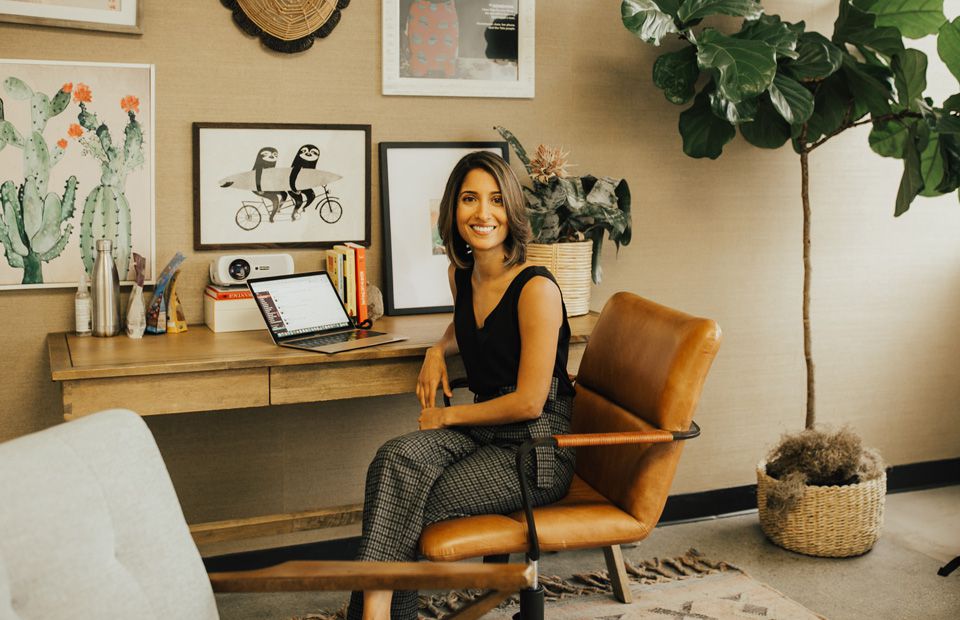
Technology
A Tech Founder on Why Being an Outsider Is a Strength
"I actually think most successful founders are rebels, of a sort. We’re trying to do new things and take on entrenched systems or ways of thinking. What makes me and our company different is that we’re outsiders."
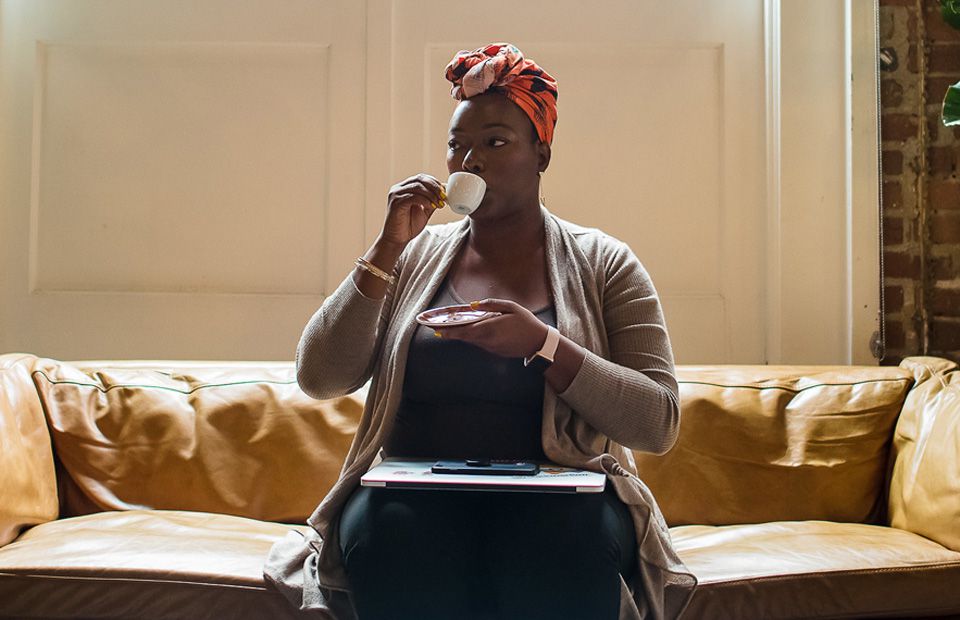
Technology
Omoju Miller—Tech Veteran, Leader, and Volunteer Advisor to the Obama Administration—on The Crucial Role of Creativity in the Tech Industry
"If you are in an environment where you feel marginalized, leave. Don’t try to change it. Go and look for a place that sees you and lets you be you."
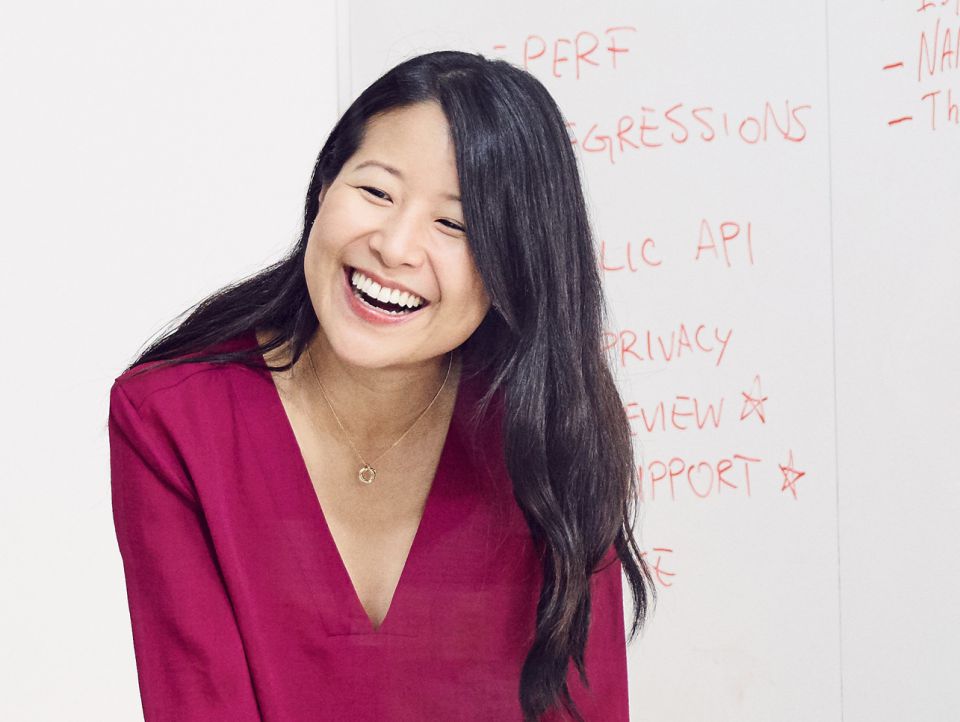
Technology
Sharing Stories as a Software Engineer
We sat down with Apple software engineer Emilie to learn about her day-to-day working at Apple along with what it takes to run the perfect meeting and her favorite ways to unwind.
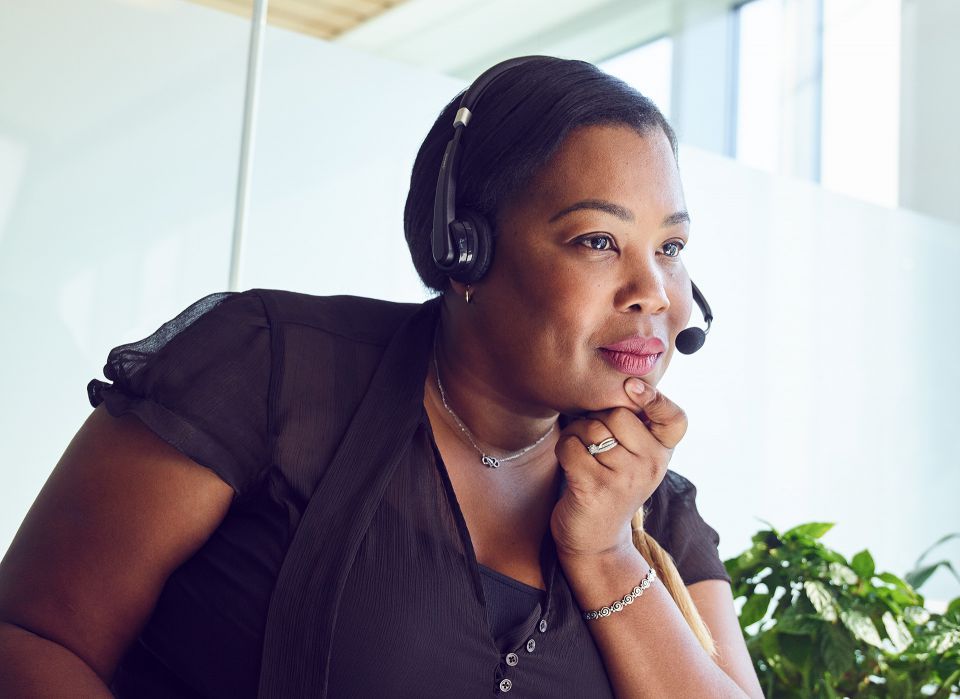
Technology
Creating Impact with Apple
We sat down with Apple's Senior Developer Partner Relations Advisor, Cris, to learn about what it takes to create a lasting impact within a large company. She shares a typical day in the life, her favorite book recommendations, and her top four tips to running a meeting.
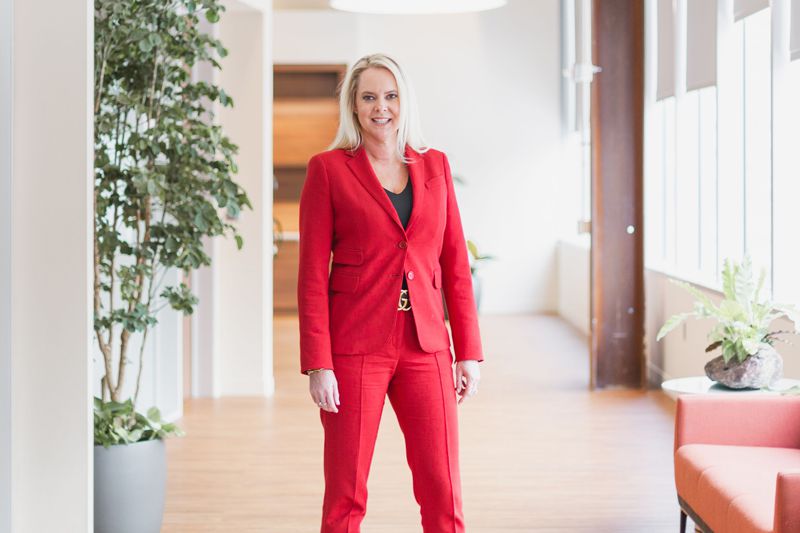
Technology
Salesforce’s Senior Vice President of Sales on Unconscious Bias, Failure, and Innovative Leadership
"Do not be afraid to fail, just bring your best self to the table."
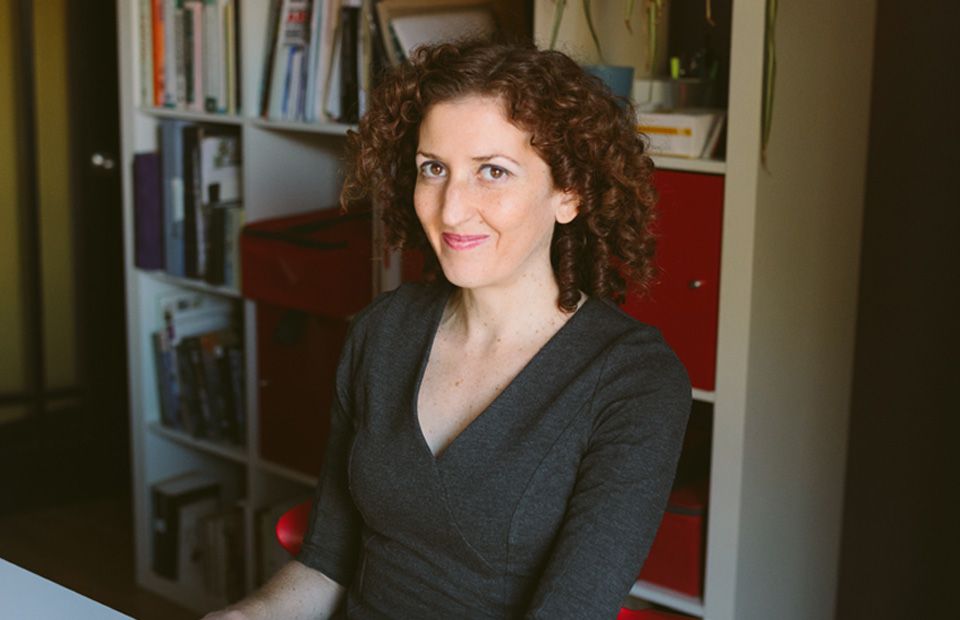
Technology
A Director of Engineering on Tech + Leadership
"I don’t believe in 'having it all'. If you spend more time on one thing, then you spend less time on another thing. All we can do is make choices on how to spend our time."
Get the Best Career Advice Delivered To Your Inbox
Join our newsletter to stay in the loop.
